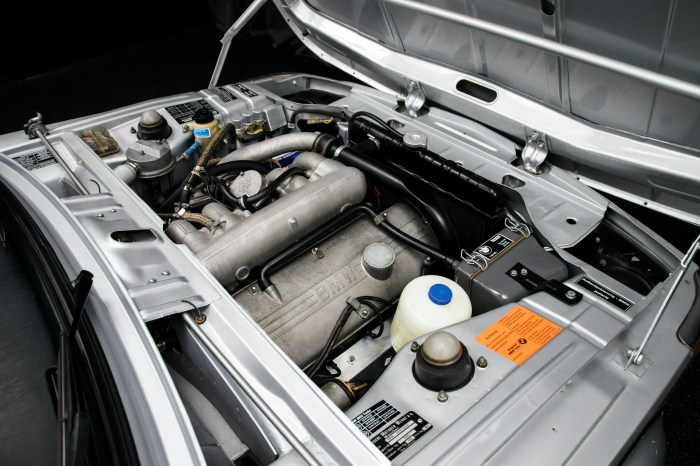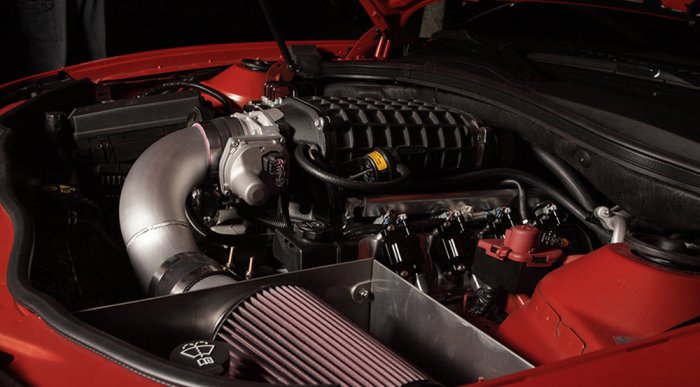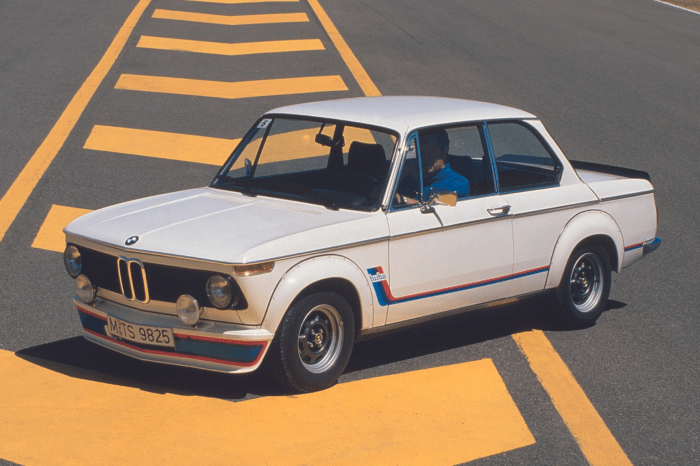With BMW turbocharged engine guide at the forefront, dive into the exhilarating world of turbocharging, where performance meets efficiency. Turbocharged engines represent a leap in automotive technology, enabling smaller engines to deliver more power without sacrificing fuel economy. BMW has a storied history of embracing this innovation, continuously pushing the boundaries to enhance driver experiences. From the early days of turbo technology to the latest models packed with high-performance turbocharged engines, this guide will take you through the essentials and intricacies of BMW’s turbocharging legacy.
Understand how the union of Manual transmission sports cars can improve efficiency and productivity.
Introduction to BMW Turbocharged Engines

Turbocharging is a technology that enhances the efficiency and power output of an engine by forcing in additional air using a turbine driven by exhaust gases. This process allows for more fuel to be burned, leading to an increase in power without a corresponding increase in engine size. Turbocharged engines offer several advantages over their naturally aspirated counterparts, including improved fuel efficiency, higher power output, and reduced emissions.
BMW has a long history with turbocharged engines, dating back to the 1970s when they first introduced turbocharging in motorsport. The brand has since evolved, integrating turbocharged technology across its lineup to provide a balance of performance and efficiency, establishing itself as a leader in the automotive industry.
Types of BMW Turbocharged Engines
BMW’s turbocharged engine lineup includes a variety of models that showcase their advanced engineering. The most common types of turbocharged engines found in BMW vehicles are the inline-4, inline-6, and V8 engines. Each of these engine types comes with unique specifications and performance metrics that contribute to BMW’s reputation for performance.
- Inline-4 Turbocharged Engines: Typically found in models like the BMW 320i and 330i, these engines deliver a balance of efficiency and performance.
- Inline-6 Turbocharged Engines: A hallmark of BMW’s engineering, seen in models such as the 540i and M340i, providing smooth power delivery and robust torque.
- V8 Turbocharged Engines: Featured in high-performance models like the BMW M5, offering exhilarating acceleration and impressive top speeds.
The performance metrics of these engine types vary significantly, with inline-4 engines generally producing around 154 to 248 horsepower, while inline-6 engines can reach up to 382 horsepower. V8 engines, on the other hand, can deliver upwards of 600 horsepower in BMW’s performance-oriented models.
Turbocharging Technology and Mechanics

The mechanical principles behind a turbocharger involve harnessing the energy from exhaust gases to spin a turbine, which in turn compresses incoming air. This process significantly increases the air density entering the engine, allowing for more fuel to be injected and resulting in higher power output.
Working Principles of a Turbocharger
A turbocharger consists of several key components: the turbine, compressor, intercooler, and wastegate. The turbine captures exhaust gases and spins the turbine wheel, which is connected to the compressor wheel on the intake side. This dual-wheel setup efficiently forces more air into the combustion chamber.
“Turbo lag refers to the delay between throttle input and the turbocharger’s response. BMW employs advanced technologies like twin-scroll turbochargers to minimize lag, ensuring a more immediate throttle response.”
Performance Tuning for BMW Turbocharged Engines
For BMW enthusiasts looking to enhance their turbocharged engines, performance tuning provides numerous opportunities for upgrades. A variety of methods can be employed to optimize engine tuning for improved performance.
Performance Upgrades
Routine enhancements can significantly elevate the output and driving dynamics of BMW turbocharged engines.
- ECU Remapping: Reprogramming the engine control unit can unlock additional horsepower and torque.
- Upgraded Exhaust Systems: High-performance exhaust systems can reduce back pressure and improve engine efficiency.
- Cold Air Intakes: These systems increase airflow into the engine, enhancing performance and throttle response.
Aftermarket modifications, such as larger turbochargers or intercoolers, can also contribute to performance enhancements, allowing drivers to reach new heights in horsepower and torque.
Maintenance of BMW Turbocharged Engines
Maintaining a turbocharged engine requires attention to detail, as these engines operate under higher pressures and temperatures than naturally aspirated counterparts. Routine maintenance is critical for optimal performance.
Routine Maintenance Practices
Owners of turbocharged BMWs should adhere to specific maintenance practices to ensure longevity and performance.
- Regular Oil Changes: Using high-quality synthetic oil and adhering to a strict change schedule are vital for engine health.
- Air Filter Replacement: Clean air filters are essential for maintaining airflow and engine efficiency.
- Inspection of Turbo Components: Regular checks of hoses, intercoolers, and wastegates help detect potential issues early.
Common issues may include turbo failure or oil leaks, often mitigated by diligent maintenance. A comprehensive checklist can help ensure that engine performance remains optimal over time.
Fuel Economy and Emissions
Turbocharging significantly impacts fuel economy figures when compared to non-turbocharged BMW models. Turbocharged engines typically offer better efficiency without sacrificing performance, which is a considerable advantage in today’s automotive market.
Impact on Emissions
BMW’s commitment to reducing emissions aligns with advances in turbocharging technology. The integration of turbocharging helps lower CO2 emissions across various models while maintaining performance standards.
| Model | Fuel Economy (MPG) | CO2 Emissions (g/km) |
|---|---|---|
| BMW 330i | 26 City / 36 Highway | 135 |
| BMW M340i | 22 City / 30 Highway | 160 |
| BMW M5 | 15 City / 21 Highway | 210 |
Innovations and Future Trends: BMW Turbocharged Engine Guide
As the automotive industry shifts towards electrification, BMW continues to innovate within the realm of turbocharging technology. Emerging technologies aim to enhance performance while addressing environmental concerns.
Future Technologies, BMW turbocharged engine guide

The development of hybrid systems may alter BMW’s turbocharging strategy, allowing for more efficient power delivery and reduced emissions. Turbocharging is expected to play a crucial role in the transition to electric vehicles, providing an efficient bridge in performance and efficiency.
Owner Experiences and Community Insights
The community of BMW owners often shares testimonials regarding their experiences with turbocharged engines. These narratives provide valuable insights into the benefits and challenges of owning a turbocharged vehicle.
Community Engagement
Forums dedicated to BMW turbocharged vehicles serve as platforms for discussing modifications and tuning experiences. Events focused on these models foster camaraderie among enthusiasts, promoting a culture of performance and innovation within the BMW community.
End of Discussion
In closing, understanding the BMW turbocharged engine guide equips you with the knowledge to appreciate not just the raw power but also the engineering finesse behind these remarkable machines. Whether you’re considering performance upgrades, routine maintenance, or simply exploring the technology, the journey through turbocharging reveals a commitment to innovation and sustainability in the automotive world. As we look to the future, BMW’s advancements in turbocharged engines will undoubtedly play a significant role in shaping the driving experiences of tomorrow.
Remember to click Coupe vs convertible sports cars to understand more comprehensive aspects of the Coupe vs convertible sports cars topic.